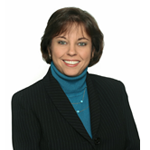As published in USA Today/Media Planet
Featuring our own Betty Hernandez!
PDF >
No one grows up thinking, “I want a career in asset-based lending (ABL) or factoring.” The executives I speak with usually tell me they just sort of “fell into it” and, they usually add, they are glad they did. ABL and factoring are niche financing products offered by a wide range of institutions, from major banks to small, independent and entrepreneurial companies. A few things set them apart from other forms of financing: ABL focuses first on the assets of a prospective borrower as collateral and factors focus on purchasing a company’s accounts receivable to provide working capital. Both serve the borrowing needs of businesses that may not totally qualify for traditional bank financing. And, executives of both ABL and factoring firms, build true relationships with their clients. ABL and factoring are now mainstream lending options preferred by many companies in need of critical growth and working capital. Young women starting their careers may be wondering, “Why should I go into this field of finance?” To answer that question, we turned to two successful female executives: Kathleen Z. Lepak, the asset based lending business director of People’s United Business Capital, states that, “Asset-based lending is a great career for a young woman looking to build her credentials in the world of finance. No other financial discipline can provide the depth and quality of credit training, the practical, hands-on approach, and the ability to learn how businesses operate. Knowledge and experience gained from ABL will positively impact a young woman throughout her career, wherever her path takes her.”
Betty Hernandez, the executive vice president-chief credit officer of North Mill Capital LLC, adds that, “Young women should consider a career in the ABL/factoring arena because it is an exciting area of finance offering a vast array of opportunities. We are an integral piece of the puzzle to both small and large companies, serving as a sounding board to hear management’s concerns and share their vision for growth and expansion. Historically, we have dealt in a male-dominated world, but that world has changed and younger women are an integral part of the work force in non-traditional fields and roles.”

